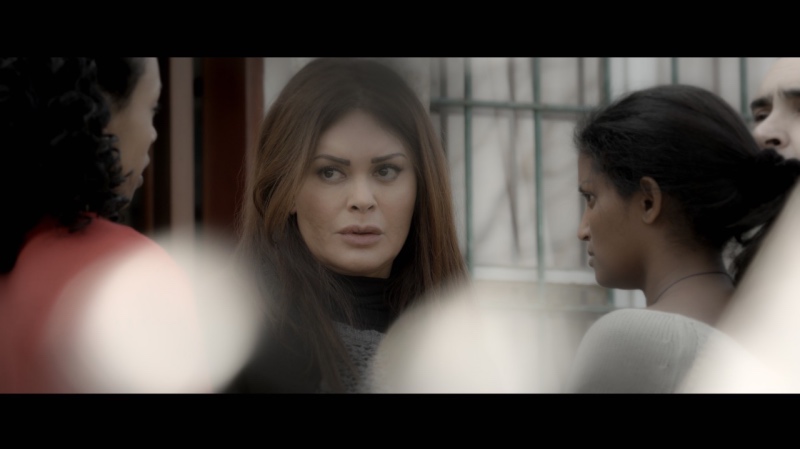Beirut
Thomson Reuters Foundation
Migrant domestic workers are seen as less than human in Lebanon, the director of a new film that exposes widespread abuse of such women said ahead of a screening in Beirut on Tuesday.
Shouting Without a Listener follows three Ethiopian women who arrive in Beirut to work as live-in housekeepers under Lebanon’s kafala sponsorship system, which binds them to one employer and prevents them from travelling.

A still from the film “Shouting Without a Listener” about migrant domestic workers in Lebanon. PICTURE: Supplied by Elie Berbary
The story, which was written by an Ethiopian former domestic worker turned campaigner and is based on real events, depicts the physical, verbal and psychological abuse the women face – and the difficulty of obtaining justice.
“The abuse is not a secret,” director Elie Berbary told the Thomson Reuters Foundation.
“It’s widely known amongst Lebanese, but not spoken about. This is an issue in our society. Most people don’t care. They don’t see their [employees] as humans, as equals.”
Human Rights Watch and Amnesty International have blamed the kafala system, which exists in many parts of the Middle East, for the abuse of migrant workers, who they say are vulnerable to exploitation because they cannot change jobs.
A migrant worker dies from “non-natural causes” every week in Lebanon according to Human Rights Watch, with suicide among the leading causes of death.
The criticism has led to some nations reforming the system and in March, Lebanon’s new minister for labour Camille Abousleiman set up a committee to look at the system.
“Whether we should focus on revisiting in the current system, or eliminate it all together…it’s all on the table,” said the ministry in an email.
Ethiopians make up the biggest group of migrant workers in Lebanon, according to government data, yet Barbary said it was rare for an Ethiopian to go public about the problems they faced.
She said she was “shocked” by the content of the script that writer Rahel Zegeye, presented her with and “immediately agreed to work with her”.
Zegeye, 39, began writing about these issues 20 years ago, shortly after she arrived in Lebanon to work.
“I myself experienced abuse and saw so many other Ethiopian women go through the same thing. It was shocking,” she said.
“I was shocked by how normal the situation was in Lebanon and that the Lebanese and Ethiopian authorities weren’t doing anything about it.”
Berbary and the cast and crew all worked for free to make the film, which received funding from the Danish Refugee Council.
It will be shown at the Metropolis Art Cinema in Beirut on Tuesday, its first major public screening, with ticket proceeds going to support migrant workers.
Zegeye now plans to show it in Ethiopia to raise awareness among young women of the problems they could face.
“I want this film to show the Lebanese people (what is happening), as well as Ethiopians back home, so they are prepared if they decide to come to Lebanon for work,” she said.






